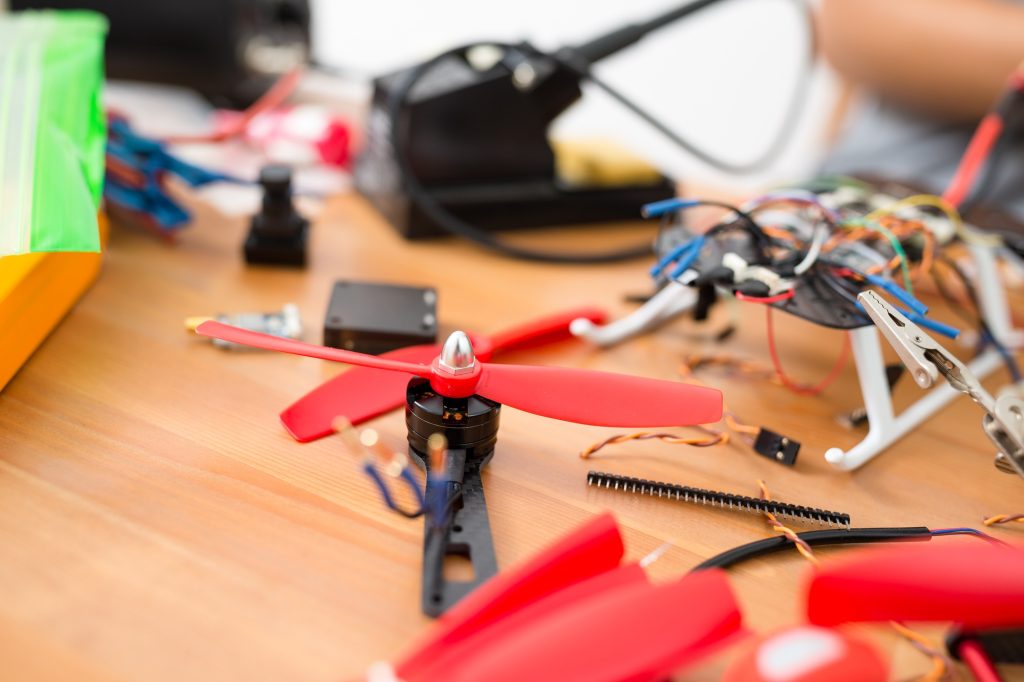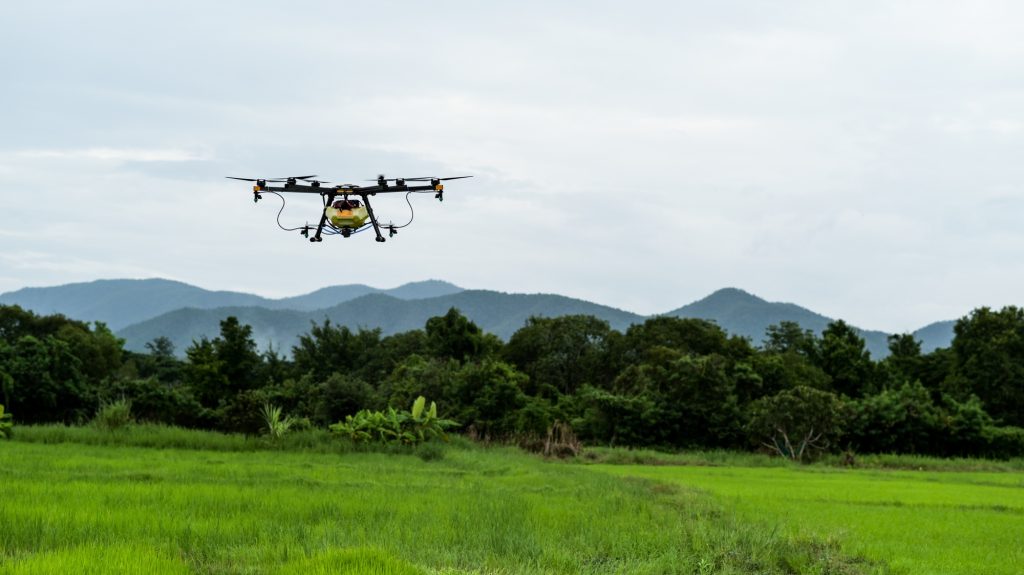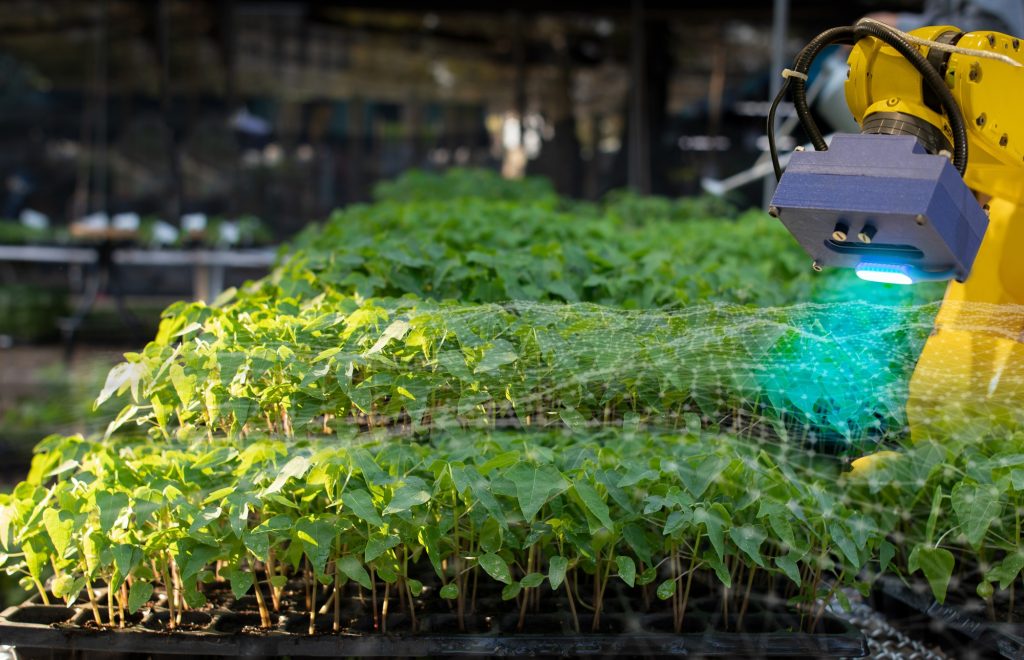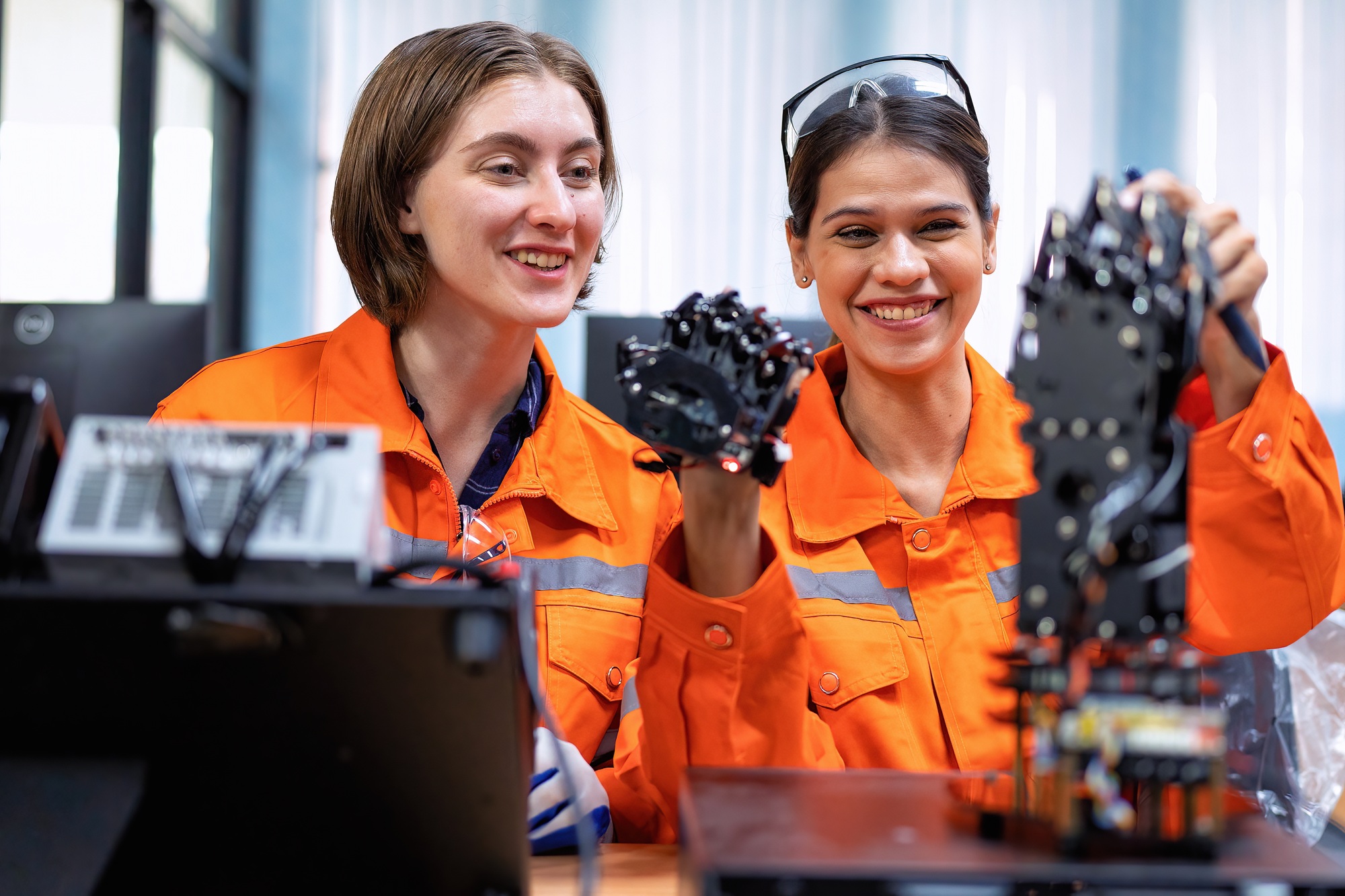How Advanced Automation Is Reshaping Key Sectors Across the Country
For years, Portugal’s scenic landscapes, historic cities, and burgeoning startup culture have drawn international recognition. Yet beyond its traditional charms, the country is also experiencing a robotics and drone revolution. Technological innovations are being harnessed to solve some of Portugal’s most pressing challenges—from maintaining the vineyards of the Douro Valley to optimizing operations at the bustling Port of Lisbon. In this article, we’ll explore the key players driving Portugal’s robotics and drone scene, highlight the benefits and challenges of widespread automation, and consider how these technologies are reshaping vital industries in the Portuguese economy.
1. Why Robotics and Drones Matter in Portugal
Rising Demand for Efficiency and Sustainability
Automation, whether through robots or drones, is increasingly important for economies seeking to remain globally competitive. Portugal is no exception. Government initiatives like Indústria 4.0 underscore the national commitment to modernizing production and services, with robotics and drone technologies at the heart of this transformation. By integrating sensors, machine learning algorithms, and advanced mechanical systems, Portugal is poised to address labor shortages, enhance sustainability, and drive innovation across a range of sectors.

Fostering a Competitive Edge
Portugal’s tech-savvy workforce, alongside its robust network of universities and research institutes, has nurtured a climate where high-tech enterprises can flourish. From large multinational companies setting up R&D facilities to homegrown startups building drone platforms, the country has laid the groundwork for advanced automation to thrive. This combination of talent, institutional support, and entrepreneurial spirit helps position Portugal as a serious contender in Europe’s broader technology landscape.
2. Agricultural Applications: Drones and Robotics in the Douro Valley
Preserving Portugal’s Viticultural Heritage

The Douro Valley, a UNESCO World Heritage Site, is famous for its terraced vineyards, winding river, and production of high-quality wines—especially Port. Traditionally, maintaining these steep, terraced vineyards has required intensive manual labor. Now, a new generation of robots and drones is stepping in to make vineyard management more efficient and sustainable:
- Autonomous Vineyard Robots: Some Portuguese wineries use specialized robots capable of navigating challenging terrains to perform tasks like weeding, trimming, and harvesting. Equipped with GPS, LiDAR, or computer vision technologies, these robots reduce the physical strain on workers and cut down on chemical use by targeting pests more precisely.
- Aerial Crop Monitoring: Drones outfitted with multispectral cameras capture data on vine health, soil conditions, and microclimate variations. Viticulturists analyze this data in near-real time, allowing them to identify disease outbreaks early or adjust irrigation schedules more accurately.

Beyond Grapes: Other Agricultural Sectors
It’s not just vineyards benefiting from drone and robotic solutions. Olive groves in Alentejo and fruit orchards in the Algarve also tap into these technologies. Farmers rely on aerial imagery and autonomous ground vehicles to optimize resource usage—like water and fertilizers—while minimizing environmental impact. This precision agriculture model is quickly becoming the cornerstone of a more resilient Portuguese farming sector.
3. Environmental Monitoring and Conservation
Managing Portugal’s Protected Areas
Portugal boasts a rich array of national parks and marine reserves, from Serra da Estrela’s mountainous habitat to the biodiverse waters surrounding the Azores. Monitoring these areas manually is time-consuming, costly, and often poses safety risks. Drones and robots offer new ways to collect data and maintain ecological balance:
- Aerial Surveillance: Agencies like the ICNF (Instituto da Conservação da Natureza e das Florestas) use drone-based monitoring systems to map endangered species habitats, track illegal dumping, and oversee reforestation efforts.
- Underwater Robotics: In coastal and oceanic regions, autonomous submarines and underwater drones collect water-quality metrics, map coral reef structures, and monitor fish populations—crucial tasks for sustainable fisheries and marine conservation.
Disaster Response and Prevention
Extreme weather events such as wildfires are becoming more common in Portugal, particularly during hot, dry summers. Drones equipped with thermal imaging cameras can spot early signs of wildfire outbreaks, giving authorities valuable time to deploy firefighting resources. Meanwhile, ground robots can assist firefighters by clearing debris, digging firebreaks, or providing critical updates in heavily affected zones.
4. Logistics and Infrastructure: The Role of Automation
The Port of Lisbon and Beyond
Portugal’s strategic location on the Atlantic coast makes its ports vital for trade and commerce. The Port of Lisbon, the Port of Leixões near Porto, and the Port of Sines in Alentejo handle millions of tons of cargo each year. As global shipping volumes continue to rise, automation becomes a powerful tool to streamline port logistics:
- Autonomous Cargo Handling: Self-driving cranes, automated guided vehicles (AGVs), and robotic forklifts can move containers efficiently with less downtime. This advanced machinery reduces human error and boosts productivity.
- Drone Inspections: Maintaining port infrastructure—such as cranes, container terminals, and ship hulls—often requires risky, labor-intensive tasks. Drones armed with high-resolution cameras and sensors can inspect these structures remotely, spotting wear and tear or corrosion early and mitigating potential hazards.
Drone Deliveries and Urban Mobility
Several Portuguese startups and multinational partners are experimenting with last-mile drone deliveries in urban areas. While current regulations limit widespread deployment, pilot projects showcase the potential for distributing medical supplies or high-priority goods across congested cityscapes more rapidly. Innovations in battery technology and route optimization are paving the way for safer, more efficient drone-based transport solutions.
5. Homegrown Pioneers: Portuguese Robotics and Drone Innovators
Tekever
One of Portugal’s most prominent drone companies is Tekever. Specializing in unmanned aerial vehicles for maritime surveillance, disaster response, and border security, Tekever has garnered international attention. Its drones are deployed in European maritime missions to monitor illegal fishing, human trafficking, and environmental risks like oil spills. Tekever’s success highlights how Portuguese firms can compete globally in specialized tech sectors.
Follow Inspiration
Based in the Aveiro region, Follow Inspiration gained fame for its “WiiGO” shopping cart robot—designed to help people with reduced mobility navigate stores. While this product targets the retail sector, it’s part of a larger wave of Portuguese robotics innovation aimed at real-world challenges, such as healthcare, hospitality, and personal assistance.
Academia Meets Industry
Research labs at the University of Porto, Instituto Superior Técnico (IST) in Lisbon, and other institutions frequently spin off robotics and drone startups. Collaborations often start with joint R&D projects and can evolve into standalone businesses. This synergy between academia and industry ensures a continuous pipeline of research breakthroughs moving into commercial applications.
6. Challenges and Regulatory Considerations
Airspace and Drone Laws
As drones gain popularity, Portuguese authorities must balance innovation with public safety and privacy. The ANAC (Autoridade Nacional da Aviação Civil) enforces regulations regarding where and how drones can operate, particularly in crowded urban areas or near airports. While these rules protect citizens, startups may find the approval process time-consuming and restrictive. However, Portugal’s approach has generally been seen as progressive, encouraging responsible drone use while still allowing for experimentation.
Cost and Skill Gaps
Robots and drones often require substantial investment in hardware, software, and maintenance. For smaller agricultural operations or conservation projects, upfront expenses may be a hurdle. Additionally, advanced robotics and mechatronics demand specialized skills, leading to gaps in the labor market. To address this, Portuguese universities and bootcamps are expanding curricula to include robotics engineering, drone piloting, and maintenance courses, aiming to produce a workforce adept at next-generation automation.
Ethical and Environmental Impact
With every advance in automation comes a debate around potential job displacement. In agriculture, for instance, robots and drones can reduce manual labor needs—impacting farmworkers who rely on seasonal picking or spraying jobs. On the flipside, these technologies can increase productivity and reduce the use of harmful chemicals, ultimately benefiting the environment. Striking a balance that protects workers and the planet remains an ongoing challenge.
7. How Intelity Supports Robotics and Drone Careers in Portugal
Intelity, a U.S.-based company specializing in high-tech studies and international career placement, recognizes Portugal’s booming automation and robotics environment. The organization offers:
- Targeted Education: Intelity’s specialized courses in robotics, UAV (Unmanned Aerial Vehicle) technology, and automation systems align with the needs of Portuguese industries, ensuring participants gain market-relevant skills.
- Career Placement: Through partnerships with pioneering firms—like Tekever or emerging startups—Intelity matches graduates to job openings in engineering, software development, drone piloting, and project management.
- Legal and Administrative Guidance: Navigating visas, work permits, and other regulatory hurdles can be complex. Intelity assists with the paperwork, expediting your entry into the Portuguese job market.
- Community and Networking: Once candidates land a role, Intelity continues to offer professional development workshops, online meetups, and alumni gatherings, fostering a supportive tech community focused on collective growth.
By bridging the gap between education and employment, Intelity ensures aspiring professionals have the knowledge, credentials, and local connections to excel in Portugal’s fast-evolving robotics and drone sector.
8. The Road Ahead: What’s Next for Portugal’s Automation Scene?
Increasing Autonomy
As sensor technologies, machine learning, and connectivity improve, expect to see drones and robots become more autonomous. Systems that can make split-second decisions, adapt to unpredictable conditions, and carry out missions with minimal human intervention are on the horizon. This leap in autonomy could further expand the range of applications—from underwater exploration to self-guided delivery drones in Lisbon’s crowded streets.
5G Integration
Portugal is rolling out 5G networks that promise faster, more reliable connections with minimal latency. For robotics and drones, a robust 5G infrastructure means real-time data transfer and control, enabling complex remote operations. A drone pilot in Porto, for instance, could remotely manage surveys in the Douro Valley with near-instant feedback, revolutionizing efficiency and response times.
Collaborative Robots (Cobots)
While industrial automation traditionally isolates robots from human workers for safety, collaborative robots (cobots) are designed to work side-by-side with people. These cobots use sensors and AI to detect human presence and avoid collisions. Portuguese factories—ranging from automotive parts manufacturers to electronics producers—are increasingly adopting cobots to handle repetitive or dangerous tasks, freeing human workers for higher-value roles.
9. Conclusion: Poised for a Robotics and Drone Renaissance
Portugal’s adoption of robotic and drone technologies is reshaping industries across the board—agriculture, environmental conservation, logistics, and more. Driven by government initiatives, academic research, and private-sector ingenuity, the country’s automation ecosystem is maturing rapidly. While challenges remain in regulation, costs, and workforce readiness, the overall trajectory points to Portugal becoming a European leader in next-generation technology solutions.
For professionals eyeing a career in this sphere—or companies looking to tap into Portugal’s talent—the future looks bright. With supportive infrastructures, an evolving regulatory framework, and organizations like Intelity offering streamlined pathways to education and job placement, opportunities abound. As Portugal continues its journey toward a more automated, sustainable future, robotics and drones will remain central to the nation’s high-tech story—revolutionizing how people work, live, and interact with the world around them.

